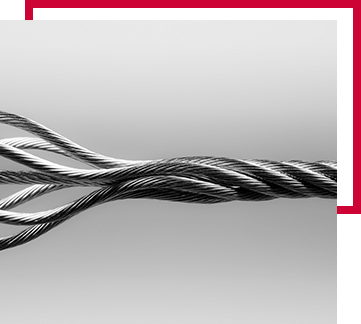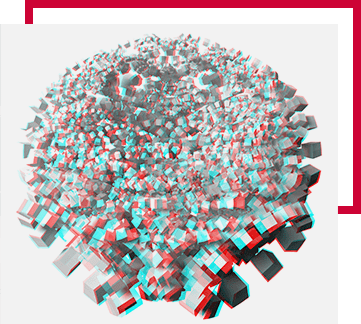Critical Thinking, Analysis and Specialisation
For when software just doesn't do the job
Stephen Hawking is quoted as saying that computers will overtake humans with Artificial Intelligence within the next hundred years. In the meantime, the need for effective critical thinking and analytical capabilities continues to grow. For more than a decade New Intelligence has been designing and developing content for the Australian intelligence community and their partners, as well as the private sector. Using simple and pragmatic paradigms and approaches we have worked hard to build a reputation as a provider of genuine thinking training.

Critical Thinking and Intelligence
Critical Thinking – Science and Practice
The body of work regarding critical thinking is very large and strongly theoretical or philosophical. This course introduces the participant to some fundamental critical thinking ideas and how to apply them in any situation. It is an ideal starting point for anyone who wants to improve how they think and begin to bring structure into this often messy and biased process. It is highly pragmatic and designed to be applied in any circumstances where thinking is involved.
Introduction to Standardised Analytical Techniques
This course is designed as a response to the Structured Analytical Techniques (SAT) training that has become so popular in the last 5 years, primarily in the intelligence field. It was also based on our inability to identify any unstructured analytical techniques and an emerging need for the techniques used by analysts to be consistent, valid and reliable.
Intelligence Doctrine and Fundamentals
The third of our fundamental level course provides participants with the essential concepts, models, processes and language to engage in professional intelligence activities and actions. More than an exploration of the Intelligence Cycle, Intelligence Doctrine and Fundamentals provides the rationale for intelligence practice and equips the participant with everything they need to begin building a career in intelligence.


Art and Science of Analysis
The most advanced and difficult course offered in any of our streams this course requires commitment from both the individual and the organisation. Run over five days, the majority of which is exercise based, participants are challenged in terms of knowledge, attitude and thinking. Widely acknowledged within the Australian intelligence community as the benchmark for pure analytical training the Art and Science of Analysis has been experienced by hundreds of analysts throughout the country.
Influence for Analysts
Our most recent course, and at the most advanced level, this course is designed to advance participants’ knowledge to support the delivery of intelligence product, particularly regarding presentations and briefings as well as written product. It is not a communications course but rather provides an understanding of the principles of influence and persuasion and how to use these to prepare and deliver product in a concise, secure and effective manner. It maps directly to the Criteria, Manage Intelligence Briefings or Presentations (POLCOV007) for the Advanced Diploma of Police Intelligence Operations.

Specialised
Psycholinguistics
In an information-driven society having the ability to ascertain when someone is being deceptive or omitting information is crucial to daily operations. By understanding the value of words people use and how they affect the overall communication and impact on any message, you can gain an insight into what someone is thinking by what they say; where the say it; and when they say it. Based on several validated models the Psycholinguistics Course takes the best of each of these techniques and combines them into one powerful tool that has been tested and proven within the public and private sector.
Practitioners will be taught ways to obtain information from a subject to enable analysis to be conducted on their language. Language choices provide insight into thoughts and feelings and understanding its relationship with how people think can open new avenues of discovery and analysis to anyone that relies on information from other people. It builds on skills developed in the non-verbal arena.
Threat Assessment
Assessing verbal, written and physical threats has become an important part of protecting most large organisations. Whether it be from internal or external factors a failure to adequately assess threats before making decisions about them can be expensive, time consuming and potentially deadly. This is a highly specialised field and due to the nature of some of the tools and techniques taught, places on the programme are subject to application approval. To arrange to talk to a consultant please contact us.
In many facets of daily life, we are seeing the growing triumph of emotion over reason, where strong emotional arguments are used to convince people of positions and assumptions that are directly opposed by facts or rendered absurd by logic. As human beings we are naturally and understandably susceptible to emotion. Many researchers and authors including Daniel Kahneman and Nassim Taleb argue that perhaps we are even more susceptible to bias and their effects. Both emotion and bias are at their most powerful when critical thinking and analytical skills are at their weakest. Everyone from politicians to advertisers rely on individuals having poor critical thinking and analytical capabilities to convince them of their messages. These capabilities do not come quickly or easily and in our experience are far more attitudinal than they are skills or knowledge based. Critical Thinkers see what others miss and make connections most cannot – this is the capability for the 21st Century.
Imagine that there is a new scientific theory that warns of an impending crisis, and points to a way out. This theory quickly draws support from leading scientists, celebrities and politicians around the world. Research is funded by distinguished philanthropies and carried out at prestigious universities. The crisis is reported frequently in the media. The science is taught in college and high school class rooms.
I don’t mean global warming. I’m talking about another theory, which rose to prominence a century ago. Its supporters included Theodore Roosevelt, Woodrow Wilson and Winston Churchill. It was approved by Supreme Court justices. Nobel prize winners gave it their support. Research was back by the Carnegie and Rockefeller Foundations…..and also done at Harvard, Yale, Princeton, Stanford and John Hopkins.
Those who opposed the theory were shouted down and called reactionary, blind to reality, or just plain ignorant. But in hindsight, what is surprising is that so few people objected.
Today, we know this famous theory that gained so much support was actually pseudoscience. The crisis it claims was non-existent. And the actions taken in the name of this theory were morally and criminally wrong. Ultimately, they lead to the death of millions of people.
The theory was eugenics.
Michael Crichton
State of Fear
We hope you enjoy the experience that we intend for our website. We do not intend for it to be a sales tool. We do not believe it should convince you that we are the answer to your problem. We want it to be somewhere for you to see if we are worth your interest and effort. If you are interested and prepared to expend a small amount of time, contact us and we will come and meet with you. We have the research, the applications, the people and the nerve to help you improve in entirely new ways.
In many facets of daily life, we are seeing the growing triumph of emotion over reason, where strong emotional arguments are used to convince people of positions and assumptions that are directly opposed by facts or rendered absurd by logic. As human beings we are naturally and understandably susceptible to emotion. Many researchers and authors including Daniel Kahneman and Nassim Taleb argue that perhaps we are even more susceptible to bias and their effects. Both emotion and bias are at their most powerful when critical thinking and analytical skills are at their weakest. Everyone from politicians to advertisers rely on individuals having poor critical thinking and analytical capabilities to convince them of their messages. These capabilities do not come quickly or easily and in our experience are far more attitudinal than they are skills or knowledge based. Critical Thinkers see what others miss and make connections most cannot – this is the capability for the 21st Century.
Imagine that there is a new scientific theory that warns of an impending crisis, and points to a way out. This theory quickly draws support from leading scientists, celebrities and politicians around the world. Research is funded by distinguished philanthropies and carried out at prestigious universities. The crisis is reported frequently in the media. The science is taught in college and high school class rooms.
I don’t mean global warming. I’m talking about another theory, which rose to prominence a century ago. Its supporters included Theodore Roosevelt, Woodrow Wilson and Winston Churchill. It was approved by Supreme Court justices. Nobel prize winners gave it their support. Research was back by the Carnegie and Rockefeller Foundations…..and also done at Harvard, Yale, Princeton, Stanford and John Hopkins.
Those who opposed the theory were shouted down and called reactionary, blind to reality, or just plain ignorant. But in hindsight, what is surprising is that so few people objected.
Today, we know this famous theory that gained so much support was actually pseudoscience. The crisis it claims was non-existent. And the actions taken in the name of this theory were morally and criminally wrong. Ultimately, they lead to the death of millions of people.
The theory was eugenics.
Michael Crichton
State of Fear
We hope you enjoy the experience that we intend for our website. We do not intend for it to be a sales tool. We do not believe it should convince you that we are the answer to your problem. We want it to be somewhere for you to explore and see if we are worth your interest and effort. If you are interested and prepared to expend a small amount of time, contact us and we will come and meet with you. We have the research, the applications, the people and the nerve to help you improve in entirely new ways.
